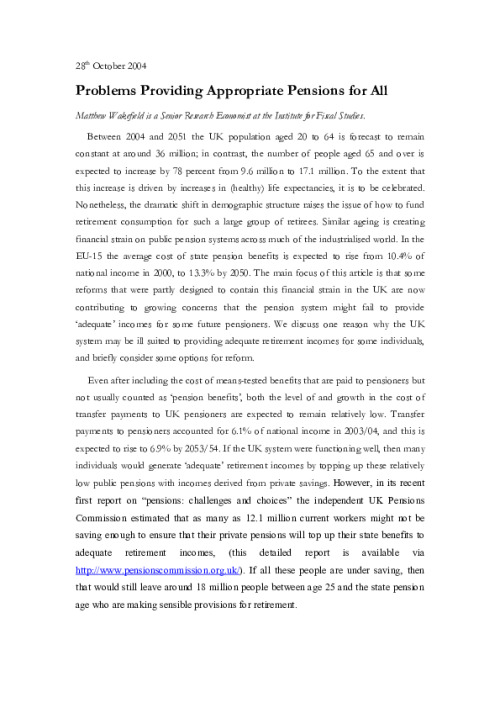Between 2004 and 2051 the UK population aged 20 to 64 is forecast to remain constant at around 36 million; in contrast, the number of people aged 65 and over is expected to increase by 78 percent from 9.6 million to 17.1 million. To the extent that this increase is driven by increases in (healthy) life expectancies, it is to be celebrated.
Nonetheless, the dramatic shift in demographic structure raises the issue of how to fund
retirement consumption for such a large group of retirees. Similar ageing is creating financial strain on public pension systems across much of the industrialised world. In the EU-15 the average cost of state pension benefits is expected to rise from 10.4% of national income in 2000, to 13.3% by 2050. The main focus of this article is that some reforms that were partly designed to contain this financial strain in the UK are now contributing to growing concerns that the pension system might fail to provide ѡdequate' incomes for some future pensioners. We discuss one reason why the UK system may be ill suited to providing adequate retirement incomes for some individuals, and briefly consider some options for reform.







